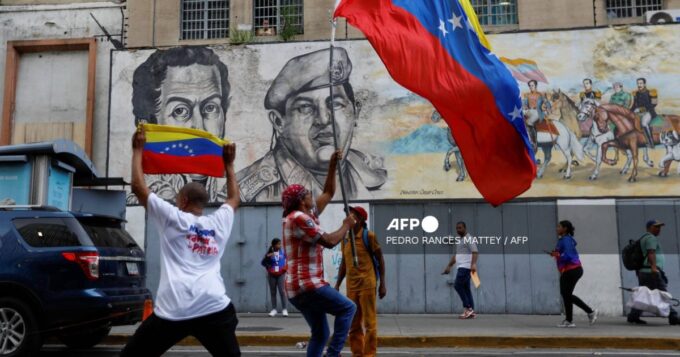Femi Akintunde-Johnson
We have been here before – only now, the music is louder, the dance steps uglier, and the dancers far more shameless. In the last few weeks, our public squares and social media spaces have been besmirched by a new depth of barbarity: stripping women naked in public over petty quarrels, recording the humiliation, and gleefully circulating it online as though shame is now a form of entertainment.
It began to gain national traction with the Comfort Emmanson saga at Lagos Airport, when a fellow Nigerian woman – an air hostess of Akwa Ibom airline, no less – and others at large, allegedly yanked her clothes in the name of superiority contest. Weeks later, another spectacle splashed across our screens: Jennifer Elobor, a young corps member, publicly debased by members of the Anambra State Vigilante Group in Oba, Idemili South, her dignity shredded while the so-called guardians of society filmed their cruelty like Nollywood extras.
This is not merely “bad behaviour.” These are signposts. They confirm what I lamented in 2021, in that long eight-week series that tried (foolishly, perhaps) to prod us into recognising the poisonous slope we were happily sliding down. The slope has since turned into a cliff, and the lemmings are gathering speed.
Ordinary Nigerians no longer wait for the courts. They do not even trust the police to bungle their cases properly. Instead, they take the law into their own hands – not against the grandees who loot billions, but against their fellow sufferers, neighbours, market women, street urchins, anyone unlucky enough to be at the centre of an altercation. It is jungle justice, now rebranded as “content creation.”
Our phones have become theatres of cruelty. Where our parents would rush to separate fighters, today’s crowd whips out Samsung and iPhone, shouting “Give am hot-hot!” and “Remove im pant!” as if decency is the enemy of entertainment. The videos are uploaded instantly, accompanied by emoji and banter. Tomorrow, when another case of mob stripping emerges, the same crowd will cluck their tongues on radio call-in shows: “Nigeria has lost values o!” Hypocrisy in HD.
But what exactly is fuelling this madness? It is the enthronement of violence and humiliation as acceptable tools of power. Bandits abduct schoolchildren in hundreds, post video proofs, demand ransom like legitimate businessmen. Yahoo-boys, once internet pests, now parade openly with convoys of cars while mothers pray their sons join “the work.” Politicians loot and sneer, judges adjourn and slumber, policemen mount checkpoints as personal POS terminals. Is it any wonder that the powerless take cues from the powerful – that ordinary Nigerians replicate cruelty in their small spheres since the big men model it daily?
We say ours is a nation where “anything goes.” Well, congratulations: everything now goes. Strip a woman in public? Record it. Burn a thief with petrol? Post it. Snatch ballot boxes? Broadcast it. Loot COVID-19 palliatives meant for the poor? Hide behind a committee report. Nobody is punished, so everybody tries a hand. We have perfected impunity as culture.
What makes this descent even more tragic is the selectivity of our outrage. We will tear the clothes off a petty debtor, or flog a hawker for stealing Maggi cubes, while those who disappear pension funds or oil revenues are escorted by police sirens and praised for their “generosity.” The mob is brave only when the target is helpless. When the thieves wear agbada and arrive in convoys, the mob become photographers, praise singers, and ushers.
This nakedness epidemic is more than the act itself. It is symbolic of the wider stripping of Nigeria’s dignity. We have been reduced to a country where women’s bodies are weapons of humiliation, where young men boast of atrocities, and where vigilante groups appointed to “protect” communities now debase them. These are not isolated episodes. They are windows into the rot: homes where violence is normalised, schools where ethics are absent, governments that reward thuggery, and a people so numbed by survival that nothing shocks anymore.
The scary part? We are globalising our shame. Once upon a time, the lynching of suspected robbers was whispered about in beer parlours. Now it trends on TikTok and Instagram Reels. Foreigners shake their heads, journalists archive the evidence, and our own youths remix the horrors with dance tracks. We are exporting our savagery, branded “Naija-style.”
Yet, in all this, the true architects of our misery remain untouchable. The politicians who arm thugs during elections, the warlords who collect “security votes” while villages burn, the kleptocrats who loot health budgets while corps members serve without protection – these are the invisible gods of impunity. They will never be stripped naked. The mob dare not. Because their crimes are too massive, too sophisticated, and too well-guarded. The poor imitate only what is within reach.
So, what shall we say then? The season of anomie is full-blown. Our nation has become a carnival of cruelty. Unless government wakes up “sharply” (to borrow Lagos slang) and punishes both the small-time vigilante abusers and the big-time looters with equal seriousness, we may soon reach a point where nakedness and lynching are the first instincts in every dispute. At that point, no constitution, no security summit, no conference of elders can stitch together the tatters of our common humanity.
We once asked rhetorically: what sort of Nigeria shall we see in 2023? Well, 2023 has come and gone. The elections were another festival of violence and ballot snatching, livestreamed for the world. Our youths dance to Afrobeats under neon lights, but behind the glitter, kidnappers, bandits, and Yahoo-boys rule the night. Women are stripped and flogged on camera. Governors negotiate with terrorists. Police stations are sacked by criminals. And the average Nigerian has learnt to mind his own business – unless, of course, there is a chance to record another person’s shame.
The question now is harsher: what sort of Nigeria shall we see in 2030? At this rate, perhaps a reality show where lynching is televised, with sponsors and jingles. “This public humiliation is brought to you by your favourite malt drink!” Absurd? Maybe. But who imagined, ten years ago, that we would be here – watching viral videos of women stripped naked while the crowd cheers?
The end is not only near. It is knocking at the door, wrapped in the laughter of a mob, armed with a smartphone, ready to go live.


















Leave a comment